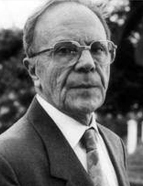

In the year following the publication of Cartas, his first historiographical work entitled O carácter social da Revolução de 1383 [The Social Character of the 1383 Revolution] was also published (1946). Serrão’s interest in this topic is likely to have been sparked by his attendance of Magalhães Godinho's classes at the Ateneu Comercial de Lisboa [Lisbon Commercial Athenaeum] (following his controversial exit from FLUL) and one of those classes was actually dedicated to this topic). It was Joel Serrão’s intention to bring a new social and economic interpretation of this central process for the formation of Portugal to the historiographical arena. António Borges Coelho, a scholar in this field, highlighted Serrão’s work as being highly innovative for the period (Jornal de Letras, 12-25 March 2008, p. 9). In short, Serrão argued that two revolutions had occurred: 1) in 1383, the revolution of the “povo miúdo” (“common people”) who protested against the precarious living conditions of the time; 2) in 1385, the «revolution-organisation» when the bourgeoisie appropriated the inadequate movement to fight for their own aspirations. Therefore, he openly criticized António Sérgio’s theory that bourgeois aspiration and Aljubarrota had been a class struggle right from the inception of the Revolution. António Sérgio replied to this criticism and even though he remained steadfast in his interpretation, he acknowledged Serrão’s worth as a young historian. (Ensaios [Essays], vol. VI, 1980, 3-10). In order to reinforce the arguments of his theory, he tried to frame the 1383 Revolution within a broad European spectrum where several social revolutions had erupted; in the second 1976 edition, he also underlined the importance of national integration in a demographic and social context of 16th century Europe. This attempt to understand national problems in a European light reflected the new desires for a renewal of historiography in Portugal, one that until then had been too centred around the singularity of the homeland.
Between 1948 and 1972, Joel Serrão taught at primary and secondary schools in Funchal, Viseu and Setúbal and from 1954 onwards at the Liceu Passos Manuel in Lisbon. Following the recreation of the Faculdade de Letras do Porto [the Oporto Faculty of Arts], he applied for a position as teacher, along with Benard da Costa and Barradas de Carvalho, but their applications somehow “vanished into thin air”) (J. Barradas de Carvalho, O Obscurantismo Salazarista [Salazar's Obscurantism] , 1974, 25). Between 1972-75 he taught at the Instituto Superior de Economia [the Higher Institute of Economics], then at the Faculdade de Letras de Lisboa (1975-79) and pursued his academic career at the Faculdade de Ciências Sociais e Humanas da Universidade Nova de Lisboa [the Faculty of Human and Social Sciences of the New University of Lisbon], until he retired in 1989.
